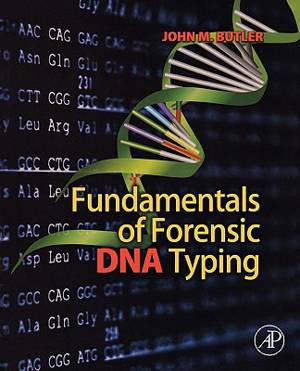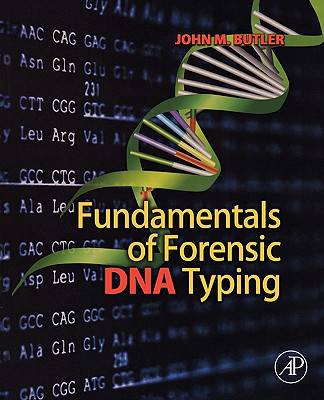
Door een staking bij bpost kan je online bestelling op dit moment iets langer onderweg zijn dan voorzien. Dringend iets nodig? Onze winkels ontvangen jou met open armen!
- Afhalen na 1 uur in een winkel met voorraad
- Gratis thuislevering in België vanaf € 30
- Ruim aanbod met 7 miljoen producten
Door een staking bij bpost kan je online bestelling op dit moment iets langer onderweg zijn dan voorzien. Dringend iets nodig? Onze winkels ontvangen jou met open armen!
- Afhalen na 1 uur in een winkel met voorraad
- Gratis thuislevering in België vanaf € 30
- Ruim aanbod met 7 miljoen producten
Zoeken
Omschrijving
Fundamentals of Forensic DNA Typing is written with a broad viewpoint. It examines the methods of current forensic DNA typing, focusing on short tandem repeats (STRs). It encompasses current forensic DNA analysis methods, as well as biology, technology and genetic interpretation. This book reviews the methods of forensic DNA testing used in the first two decades since early 1980's, and it offers perspectives on future trends in this field, including new genetic markers and new technologies. Furthermore, it explains the process of DNA testing from collection of samples through DNA extraction, DNA quantitation, DNA amplification, and statistical interpretation. The book also discusses DNA databases, which play an important role in law enforcement investigations. In addition, there is a discussion about ethical concerns in retaining DNA profiles and the issues involved when people use a database to search for close relatives. Students of forensic DNA analysis, forensic scientists, and members of the law enforcement and legal professions who want to know more about STR typing will find this book invaluable.
Specificaties
Betrokkenen
- Auteur(s):
- Uitgeverij:
Inhoud
- Aantal bladzijden:
- 520
- Taal:
- Engels
Eigenschappen
- Productcode (EAN):
- 9780123749994
- Verschijningsdatum:
- 20/08/2009
- Uitvoering:
- Paperback
- Formaat:
- Trade paperback (VS)
- Afmetingen:
- 191 mm x 235 mm
- Gewicht:
- 893 g

Alleen bij Standaard Boekhandel
+ 169 punten op je klantenkaart van Standaard Boekhandel
Beoordelingen
We publiceren alleen reviews die voldoen aan de voorwaarden voor reviews. Bekijk onze voorwaarden voor reviews.











